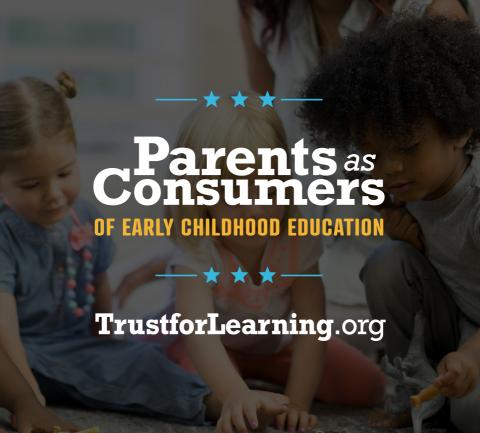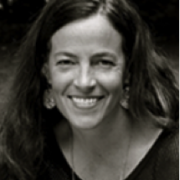
We know what we want for our kids in early childhood, now how do we get it?
I wear two hats. I’m a parent and I’m an advocate for high quality early childhood education that prepares children for success in school and, ultimately, life. As a parent, I’ve experienced the anguish that all parents feel when trying to choose the first education experience for their young child. As an advocate, I’ve sat in countless meetings where early educators and policymakers talk about what parents need to know, but in my heart, I instinctively knew that parents know best when it comes to the needs of their children. What they truly need is for people to listen to what they want and make sure they can get it.
I’m happy to report that my organization, Trust for Learning, has conducted research that answers the question as to what parents really want from the early childhood education programs they seek for their children. Nobody had ever asked parents what they wanted as consumers, so we did.
It turns out that parents know what their children need, they understand what quality early childhood education is, and they have a hard time finding it. Shocking, right? However, what seems self-evident to parents should be a revelation to early childhood providers and policymakers. We want greater access to affordable, high quality early childhood education that helps us in developing our children into intellectually, morally, behaviorally and socially capable individuals. Too often, parents go looking for ideal opportunities for their children, but they just aren’t available. So what do they have to settle for? Lesser quality opportunities at a time when their children’s brains are ripe for learning and growing. I can’t imagine a more frustrating and heartbreaking experience for parents. It’s time for less talk and more action in delivering ideal early learning programs that work for each and every child.
We found that participants in 12 focus groups and an online survey of 1,449 parents nationwide constantly and consistently described what we call Ideal Learning—highly personalized, child-centric early education that creates a capable, well-rounded child—as the preferred learning experience for their children.
Parents told us in the focus groups that early childhood education “must be personalized…to nurture [my child’s] uniqueness’s,” and that “it is important that the child learns on his/her own level, being that all children learn at a different pace.”
Parents told us that they want programs that develop their children’s social and emotional skills; appreciate their unique abilities, interests and potential; create a safe space for them to make mistakes and grow; and teachers that guide children to carry out their own learning through an intentional, proven curriculum.
Not coincidentally, what parents described as that ideal experience is also what’s been proven to work best for kids.
Parents also described the outcomes they want for their children: first and foremost, that their children are supported as they develop into capable and well-rounded individuals that have the social, emotional and intellectual skills to thrive in relationships, careers and communities. They want their children to become motivated, confident, happy with themselves, accountable and prepared to handle the real world later in life.
These are all the things that high quality ideal early learning does for children.
The problem is that too many families don’t have access to these programs. They’re too expensive, too far away from home or just plain not available. Families settle for programs that are safe and nurturing, but don’t provide the full range of experiences that we know are best for children. That’s a tragedy given the importance of early childhood education. It’s our mission to do something about that.
So what can we do as parents to ensure that our children—and all those in our communities—get the Ideal Learning experience they deserve? Let’s change the marketplace by using our power as consumers and voters. Let’s start by asking the important questions that help us decide whether the programs we’re considering and those offered in our community will create the outcomes we want for our kids.
Based on our research of what parents want from early childhood education—and evidence of what children need—you can ask these five questions to know if a program is ideal for your child:
1. Do you take a personalized approach to education and what does that look like?
2. How do you know my child and appreciate their unique abilities, interests and skills?
3. How do you achieve high standards without standardization?
4. How do you challenge my child to reach developmental milestones and give them support to achieve their potential?
5. How do your teachers guide self-directed learning in a structured curriculum and how do I know that it works?
If we ask these questions, we’ll find the right programs and send a message that we’re not going to settle for less. As parents and advocates, we must be intentional in seeking out early education programs that make the effort to get it right; and send policymakers a message that we’re serious about wanting high quality programs for our children. Join us in making the ideal real for all children by visiting www.trustforlearning.org.



The views and opinions expressed in this post are those of the author(s) and do not necessarily reflect those of MomsRising.org.
MomsRising.org strongly encourages our readers to post comments in response to blog posts. We value diversity of opinions and perspectives. Our goals for this space are to be educational, thought-provoking, and respectful. So we actively moderate comments and we reserve the right to edit or remove comments that undermine these goals. Thanks!